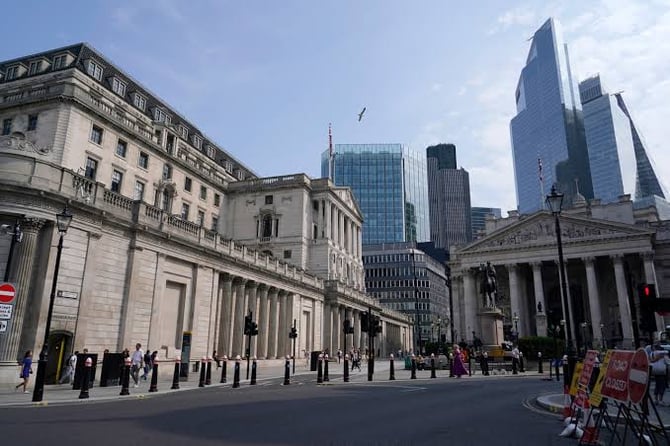Bank of England Cuts Interest Rate in Economic Balancing Act

The Bank of England (BOE) has cut interest rates for the first time since the pandemic, reducing the benchmark from 5.25% to 5%. This move, marking a significant shift after the longest series of rate hikes in a century, comes as a relief to households facing the highest borrowing costs in 16 years.
The decision was contentious, with a close 5-4 vote among the Bank's monetary policy committee members. Governor Andrew Bailey emphasized the need for caution to prevent inflation from resurging, particularly as the UK economy shows signs of strengthening, potentially pushing inflation upwards.
Inflation in the UK had slowed to 2% in May and stayed there in June, aligning with the Bank's target for the first time in nearly three years. However, the BOE expects inflation to rise in the short term due to the diminishing effects of recent drops in household energy prices, before falling below the 2% target within two years. This decision follows the US Federal Reserve's choice to hold rates steady, though future cuts remain possible for both institutions.
What Does This Mean for Me?
Concerns persist among some BOE policymakers about the persistence of inflation, especially in the services sector, which stands at 5.7%. Monetary policy will remain restrictive until inflation risks are sufficiently mitigated. Analysts predict the next rate cut might not occur until November, reflecting a cautious approach.
More News
.webp)
Japan’s Rate Shift Is Rippling Through Global Bond Markets
1 week ago

China’s Growth Engine Stalls as Consumers and Investors Pull Back
1 week ago

Egypt’s Recovery Gains Traction as Household Pressure Lingers
3 weeks ago

OECD Warns AI and Tariffs Will Test the Global Economy
3 weeks ago

Zero Tariffs, Higher Drug Bills as US and UK Reset Pharma Trade
3 weeks ago

Catastrophe Bonds Go Global as Climate Risk Meets Yield Hunting
1 month ago
.webp)
Canada Shields Steel and Lumber Industries From Tariffs
1 month ago

Trump Drops Selected Tariffs in Response to Inflation Pressures
1 month ago